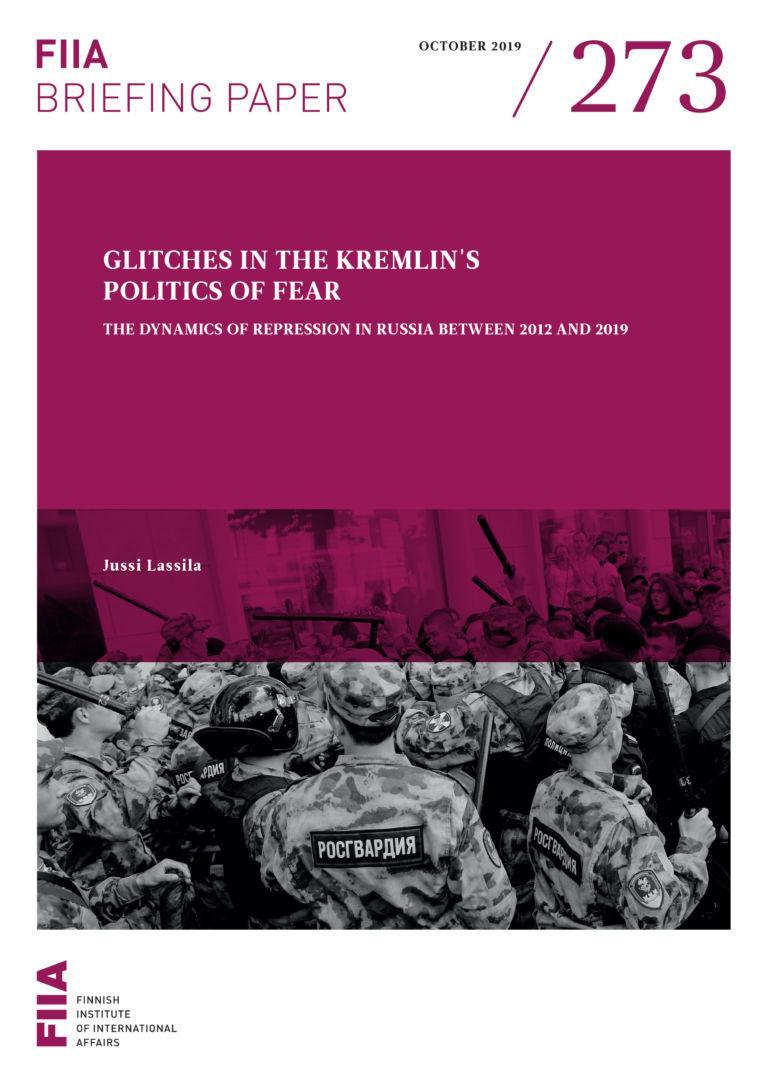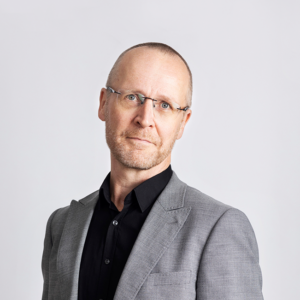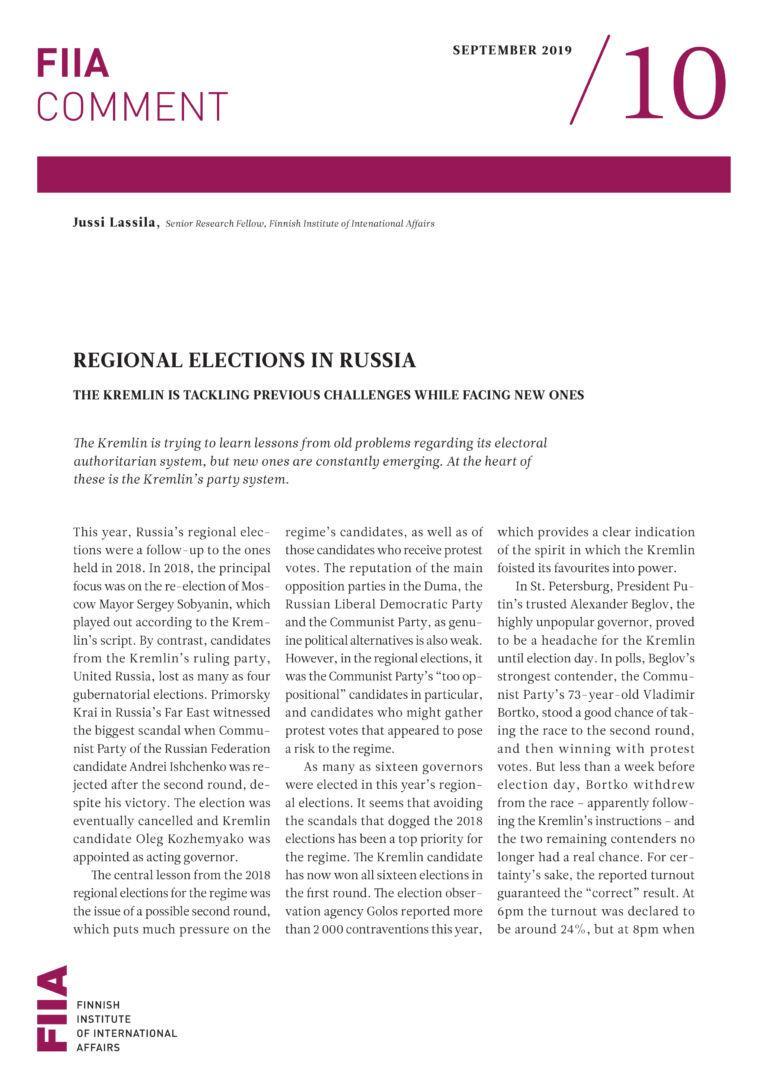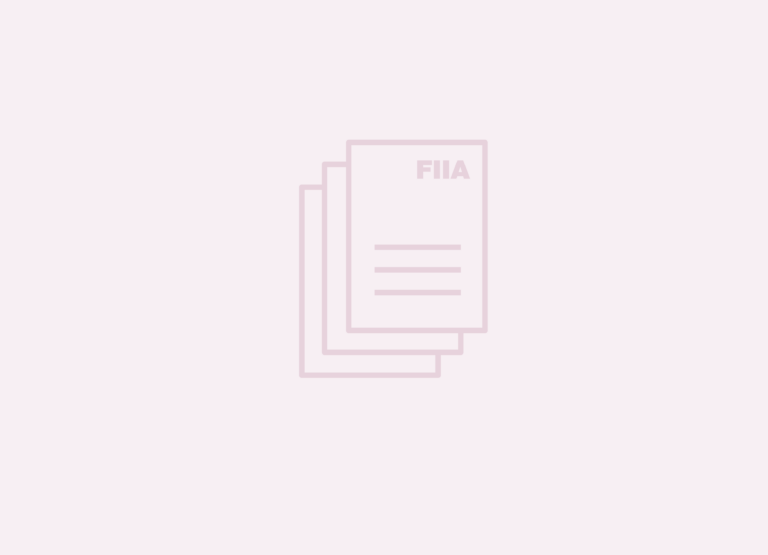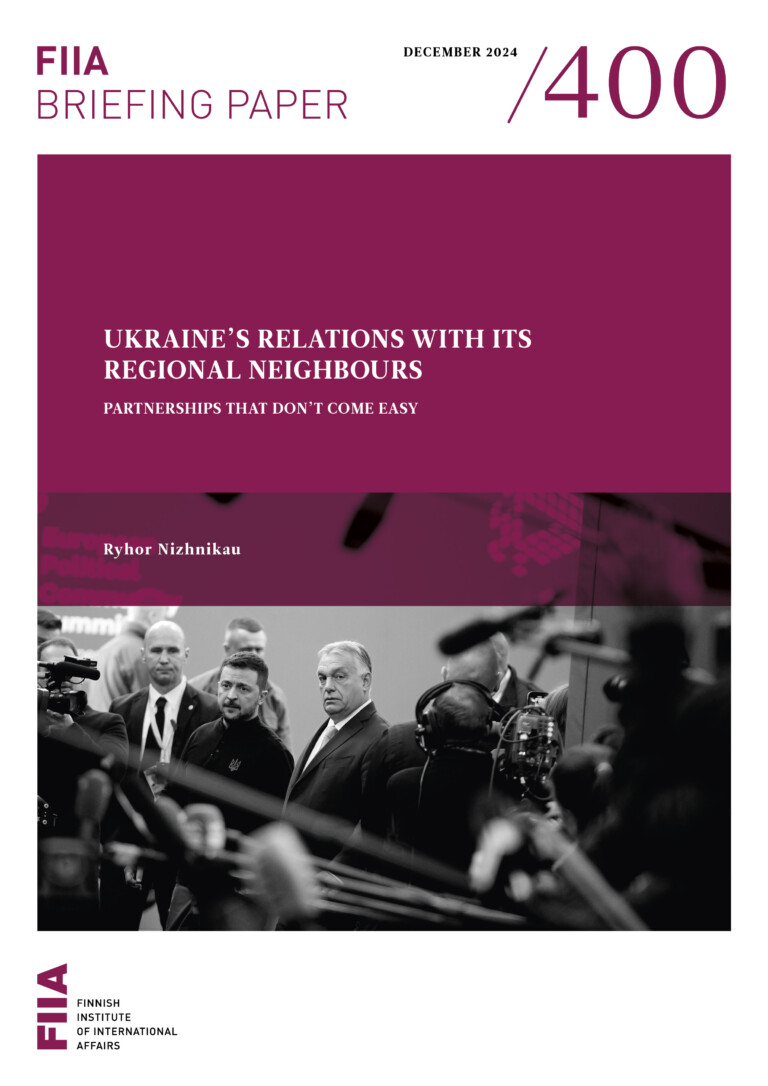- Along with Vladimir Putinʼs third presidential term, intensified repression has manifested itself in line with the countryʼs increasing economic challenges. The starting point for this political trend was the so-called Bolotnaya Affair in May 2012.
- Since then, the regime has tightened the screws: non-governmental organizations receiving foreign funding must register as ‘foreign agents’; there are numerous restrictions on the use of the internet, as well as conditions for organizing demonstrations.
- The regimeʼs policies aim to send signals to the rest of society about the serious consequences that unwanted political and civic activities might cause. However, measures become inflated when the repressive deterrent targets too many.
- By 2019, along with the changed social mood, unparalleled solidarity against repressive policies, particularly around the regional elections in Moscow, has forced the authorities to retreat from some of their initial repressive goals. The Kremlin duly has to re-evaluate the usage of its repressive deterrent against the political opposition and civil society.
Introduction
The link between authoritarian regimes and repression is well known. With few exceptions, dictatorships based on purposeful ideological repression have disappeared from the modern world and current authoritarian regimes are using more nuanced mechanisms, primarily based on economic carrots, to secure their power. Thus, the extent and character of repression in modern authoritarian states strongly correlate with the general economic situation. As a rule of thumb, the stronger the economy, the less repression occurs, while the weaker the economy, the more repression is likely to ensue.[1]
It is no coincidence, therefore, that with Vladimir Putinʼs third presidential term, which began in 2012, intensified repression has manifested itself in line with the countryʼs increasing economic challenges. The most important symbol of this political trend became the so-called Bolotnaya Affair. The event was part of a series of widespread protests that began in December 2011. However, unlike in previous protests, where a large number of police officers had calmly followed the protests without intervening, a crackdown on demonstrators was launched. An estimated 400–700 protesters were violently arrested, resulting in 14 people being sentenced to several years in prison and dozens receiving stiff fines.
With the advent of the Bolotnaya Affair, Russiaʼs independent civil society, media and political activities have come under increasing control. Although there has been a significant increase in the use of repressive policies since 2012, their principal nature is based on selectivity and a deterrent effect. These effectively marginalized the activities of the political opposition and facilitated self-censorship, especially amid the atmosphere of the regime-aligned national pride that followed the Crimean invasion. By 2019, with the changing social climate, the previous deterrent effect has somewhat weakened and the authorities have repeatedly been forced to soften their initial repressive goals. This Briefing Paper provides an overview of the Kremlinʼs repressive policies from Bolotnaya to today, examining their key features, logic and constraints, as well as the broader social criticism and organization that emerged in the summer of 2019 against the regime’s repressive measures.
Tightening the screws
Since 2012, the regime has markedly increased legislation and administrative efforts aimed at making it more difficult to criticize the regime on all levels. The most significant repressive measures have been the following:[2]
- The law obliging non-governmental organizations receiving foreign funding to register as ‘foreign agents’, subject to serious fines or closure.
- Numerous restrictions on the use of the internet, increased powers for the authorities to close down websites, and more stringent criminal law on defamation in the media.
- Strengthening electronic money transfers under the pretext of anti-terrorism policies.
- Tightening the conditions for organizing public meetings and demonstrations, and tougher penalties for participation and involvement in unauthorized demonstrations.
- Extending anti-extremism laws, giving the authorities broad powers to interpret behaviour they deem extremist (including, in this context, laws prohibiting propaganda about ʻnon-traditionalʼ sexual relationships, and offending the religious feelings of believers).
Central to these laws is not only their arbitrary legal nature, but also their arbitrary implementation. Whether it is deliberate arbitrariness or the incompetence of the judiciary, the result has been an effective ʻpolitics of fearʼ that is holding back civil society and any political activities. Particularly after the invasion of Crimea in 2014–2016, the Kremlinʼs politics of fear effectively marginalized the increasingly few critics of the regime, while civic sentiments became deeply sympathetic towards the Kremlin and its anti-Western patriotic course. In this respect, repressive measures against opponents of the regime did not attract much attention, let alone sympathy from the majority of citizens. According to Kirill Rogov, the issue here is about ʻrepressive populismʼ, which seeks to legitimize the politics of fear. In addition to targeting minority civic activists with fear and arbitrariness, their repression is portrayed in mainstream publicity as a security issue that protects the ʻpatrioticʼ majority, which allegedly has a positive view towards the regimeʼs efforts in national security.[3]
In addition, elite arrests and dismissals as facets of repressive populism, often receiving widespread mainstream coverage, must not be overlooked. Criminal charges and convictions against high-level officials, businesspeople and politicians have been the Kremlinʼs response to the rise in criticism voiced by the opposition and civil society concerning the structural corruption perpetrated and condoned by the regime. Hence, the governmentʼs efforts to fight corruption, in turn, signal to the rest of the elite that any action that may be independent of the supreme political and economic power will be interpreted as a sign of disloyalty and will be severely retaliated against. In addition, elite arrests[4] are linked, on the one hand, to the economic interests of the top political leadership and, on the other, to the need for the Kremlin to control the leadership of different regions and sectors of society. As far as regional policy is concerned, it is revealing that as many as 15% of mayors in Russia have been charged with a crime in the last 11 years. Of course, criminal prosecution does not remove the authenticity of the corruption related to regional politics, but it is well known that prosecutions are not brought on equal legal grounds. In other words, some are more easily convicted of the same offences than others.
The most widely used form of repressive policy from Bolotnaya to date has been Article 20.2 in the Code of the Russian Federation on Administrative Offences, concerning ʻViolation of the Established Procedure for Arranging or Conducting a Meeting, Rally, Demonstration, Procession or Picketʼ. Unlike criminal charges that require more procedural treatment, the use of Article 20.2 was initially a relatively soft coercive measure. However, between 2004 and 2018, the number of sections increased from three to ten, with additional sanctions including ʻthe organization of uncoordinated meetingsʼ and the participation of the underaged in such activities.[5] The number of cases under this Article increased sharply in the Russian courts in 2017–18 compared to 2013–2016. However, they clearly decreased after 2011–12. This dynamic is directly related to protest activities since the peak years for the use of the law were 2011–12 and 2017–18, years that were hitherto peak protest years. At the same time, punishments have increased. While convictions were secured in roughly half of the six thousand cases investigated in 2011, the number of convictions increased in 2017 to 75% in five thousand cases. In 2018, convictions increased to 77%. The average fines have increased even faster. While in 2012 the average fine was 3,649 roubles, in 2018 it was 17,247 roubles.
After the Bolotnaya arrests, the most visible trend in the coercion against civil society has been the increased control over the internet. In particular, there were cardinal changes between 2017 and 2018. Figure 1 shows the major measures and the number of cases related to control over the internet in Russia.[6]
[caption id="attachment_97049" align="aligncenter" width="708"] Figure 1. Major measures and number of cases related to control over the internet in Russia in 2015–2018.
Figure 1. Major measures and number of cases related to control over the internet in Russia in 2015–2018.
Source: Doklad Mezhdunarodnoy Agory 'Svoboda Interneta 2018'.[/caption]
Missing the target
Strong and well-resourced security authorities (siloviki) also have an impact on the way in which coercive and repressive measures are used. The growing number of siloviki is manifested in their increasing need to demonstrate their professional necessity to society. On the other hand, the political leadership seeks to assess the extent to which repressive legislation and measures serve political purposes. The trend that has strengthened since 2016 has been a visible reduction in the use of the so-called extremism clause (Article 282 in the Criminal Code of the Russian Federation concerning ‘Incitement of Hatred or Enmity, as well as Abasement of Human Dignity’).
In particular, the tendency of investigators to interpret acts as extremist activities led to repeated public scandals. Perhaps the most tragicomic story thus far has been the case of Mikhail Listov in Arkhangelsk in 2018. Listov was fined 1,000 roubles for a “public display of Nazi symbolism” in social media after posting an iconic image of the Red Army victory parade in Moscow in 1945, which showed Soviet soldiers holding Nazi banners lowered to the ground as a symbol of victory. The fine was eventually overturned.
The case of Maria Motuznaya can be regarded as the turning point. She was prosecuted for distributing extremism as well as insulting the religious feelings of believers on the basis of a single meme she published in social media in the summer of 2018. Eventually, the investigation was suspended and the court granted her compensation to the tune of 100,000 roubles for false charges. Both cases demonstrate that the extremism clause is being used against society and Russiansʼ everyday communication culture at large, and it appears that the latter is perceived as too liberal only by investigative authorities and in certain conservative instances. In this respect, the politics of fear became inflated when the repressive deterrent began to target too many. To quote a Russian expert, “whereas an ʻextremistʼ used to mean a bearded militant in camouflage gear armed to the teeth, it has now become a regular nerd at a computer”.[7]
Instead of applying an incisive and ever-expanding clause on extremism, repression has since increased against previously more free-flowing ʻmarginalsʼ. These include, for instance, opposition nationalists, anarchists, Jehovahʼs Witnesses, Scientologists and Crimean Tatars. From the point of view of the politics of fear, the increasingly harsh verdicts they have received do not necessarily act as deterrents for the rest of society for the simple reason that they are relatively marginal figures for the majority. According to a Russian human rights lawyer, this shift in the application of repressive policies is primarily due to the fact that ʻthe huge army of security authorities has to have something to deal withʼ.
Insofar as limiting the internet is about controlling and eliminating activities that are critical of the regime, it is difficult to say whether this has been effective. Virtually all information and social organization that criticizes Russian political power occurs on the internet in line with global trends. As a result, and despite the regimeʼs restrictions, the number of protests increased significantly between 2017 and 2018. Comprehensive control of the web in the context where internet use is becoming commonplace throughout Russia is impossible. In this sense, it was only in 2012 that the Kremlin actually responded to the threat of the internet, and from its viewpoint, this happened way too late. Whereas the aforementioned legislative excesses and criticisms of the public are predominantly related to activities on the internet, its global role in the modern world, including Russia, places obvious constraints on political control over web content. As evidenced by the changes and dynamics in internet surveillance, technical control over internet activities is a top priority for the regime. This becomes particularly understandable from the regimeʼs viewpoint, given citizensʼ decreasing trust in television.[8] In this respect, websites that are considered to be malicious can be quickly closed down without using formal legal procedures. The debate and measures to disconnect Russiaʼs national internet (RuNet) from the World Wide Web are directly related to this technical capacity. However, if the large-scale shutdown or isolation of RuNet takes place in the context of domestic political unrest for a longer period of time, even in a single city or region, its aggregate targeting of the whole community would likely generate considerable and unpredictable criticism against the regime. Thus, the political threshold for such a measure remains high.
2019: A new beginning?
Developments over the course of 2019 indicate that the protest sentiments and activities that erupted in 2017 and 2018 are continuing. The number of protests on a variety of topics started to grow markedly from 2017 onwards. The major peak in 2017 emerged with the protests organized by Aleksey Navalny, while in 2018 the governmentʼs pension reform caused multiple protests, which also resulted in a sharp decrease in Putinʼs public approval.
In summer 2019, the major conflict between the regime and society unfolded around the regional elections in Moscow. The oppositionʼs determination to nominate independent candidates for the election on September 8 faced abrupt rejection by the authorities. Instead of the occasional demonstrations that were to be expected after being excluded from the legitimate political process, the opposition managed to mobilize large-scale citizen meetings against the blatant anti-constitutional decisions. The next, and more serious, mistake by the authorities was the use of brutal force against Muscovites on a peaceful protest walk they had organized in Tverskaya Street on July 27, which was declared illegal by the authorities. Despite the fact that all of the major opposition leaders were arrested well before the event, it seems that the sheer volume of citizens frightened the authorities – and the security structures in particular – into detaining hundreds of citizens by exceptionally violent means. The protest agenda duly changed from relatively marginal elections to the anger of citizens against the violence of authorities. The next major meeting on August 10, now allowed by the authorities, gathered together approximately 50,000 people in the centre of Moscow, being one of the largest political demonstrations since the protests of 2011–12.
Although it is too early to speculate how the regime will calibrate its political control after the experience of the Moscow protests, the principal difference between Bolotnaya 2012 and Tverskaya 2019 lies in the level of the regimeʼs determination to punish its rivals. Whereas Bolotnaya demonstrated well-calculated and careful preparation to break the protest movement, the immediate aftermath of Tverskaya demonstrated a much more improvised reaction, yet the initial goal of the authorities was in tune with Bolotnaya. Several detainees were charged with causing mass riots, which were also used in the Bolotnaya trials. But unlike the Bolotnaya case, where the sentenced will end up in prison for years, the pressure of public opinion and criticism forced the judges to retreat in 2019. The primary objective of using extremely harsh convictions to stir up fear caved under societal pressure. Nonetheless, prosecutions have not vanished completely and it is too premature to talk about a universal softening of the regimeʼs policies.
The overarching explanation for the differences between these events can be found in the changed social climate. Bolotnayaʼs ʻreturn to authoritarianismʼ at the start of Putinʼs third presidency surprised the then protest movement. In addition, the majority of citizens viewed Putinʼs return in a much more positive and fresh light than in 2019. Yet there is no major difference between Putinʼs support in 2012 and in 2019. The key difference is in the changing needs of citizens and, in particular, in the end of the so-called ʻCrimean Consensusʼ in 2018–19 when citizens became increasingly inclined towards resolving internal problems rather than nurturing foreign policy successes and national pride.[9] Also noteworthy is the dissatisfaction with Moscowʼs arrests throughout Russia. In October 2019, 38% of citizens condemned the indictments and measures related to the Moscow protests (24% approved and 28% said they had never heard of them).[10] Similarly, by mid-October, some 220,000 citizens had demanded that the criminal charges against those arrested during the Moscow protests must be dropped.
Corporate solidarity against the repressive methods of the authorities is a new feature in Russian civil society, especially in the sense that it has forced the regime to retreat. The case of journalist Ivan Golunov in June 2019 was a pivotal moment in this respect when journalistsʼ solidarity led to the withdrawal of the arbitrary prosecution against him. Moscow protests have since seen groups of actors, lawyers, doctors, and even church representatives acting on behalf of the convicted, calling for the charges to be dismissed. Although not fully dismissed by the authorities, they have significantly reduced their original claims. Administrative uncertainty over repressive methods has given rise to legitimate doubts about internal disputes within the regime, in particular between the security authorities and those favouring softer administrative measures. Noteworthy in this regard was the strong criticism about prosecutions expressed by Andrei Turchak, a member of the governing body in the ruling United Russia party.
Conclusions
Recent citizen solidarity in opposing the repressive measures of the authorities is related to the nature of todayʼs authoritarian rule in Russia. Unlike the Soviet Union, China, or any other regime that relies on ideological repression, the Kremlinʼs repressive actions are not based on any clear ideological or political principles. The Constitution of the Russian Federation does not provide direct justification for the political hegemony through the ruling party or the president, for example. Whereas this has allowed repetitious flexibility in the regimeʼs interpretation of the Constitution and, more generally, the political rules of the game, the current Constitution has also been a key reference for the political opposition and civil society in their criticism of the regimeʼs violations in adhering to the Constitution.
Russiaʼs weak institutions, particularly the weakness of the judiciary, have served the post-Bolotnaya politics of fear. Judges have made their decisions more in terms of guaranteeing their position and the associated loyalty to the system rather than in terms of independent law. This has resulted in the excessive power of the investigative and prosecution authorities, and the entire judicial process is largely dictated by their will. Acquittals have been extremely rare.[11] This kind of institutional weakness in itself serves as an authoritarian deterrence, particularly in terms of prisons and detentions. Violence by the security and supervisory authorities as well as violence and torture in prisons are widely recognized facts. The widespread publicity related to cases of torture in recent years is reflective of the critical media and the viability of civil society, despite the difficult circumstances. Yet these revelations can raise the threshold for citizens to participate in any action prohibited by the authorities.
Since 2012, the repressive actions of the regime have been on a growth track, although the issue is far from any mass repression against society as a whole. The use of repressive methods by an authoritarian regime that aims to sustain a modern façade, and which is ultimately dependent on the approval of its citizens, requires a ʻdelicate balance between sticks and carrots, and skillful and measured application of various tools of political controlʼ.[12] In 2019, changes in citizensʼ attitudes towards the arrest of fellow citizens have taken place and a new form of social solidarity has led to the authorities backing down on a number of occasions with regard to repressive legal processes. This shows that the aforementioned equilibrium has been somewhat distorted and it is obvious that the Kremlin will have to re-evaluate its politics of fear against the political opposition and civil society at large.
Endnotes
[1] Sergei Guriev and Daniel Treisman (2015), ʻThe New Authoritarianismʼ, VOX CEPR Policy Portal, 21 March 2015, http://www.voxeu.org/article/new-authoritarianism.
[2] Vladimir Gelʼman (2016), ʻThe Politics of Fear: How Russia’s Rulers Counter their Rivalsʼ, Russian Politics 1, 39–41.
[3] Kirill Rogov (2018), ʻThe Art of Coercion: Repressions and Repressiveness in Putin’s Russiaʼ, Russian Politics 3, 166–167.
[4] To mention a few, the arrest of the billionaire brothers Ziyavudin and Magomed Magomedov in 2018 and the arrest of the Minister of Economic Development, Alexey Ulyukaev, in 2016.
[5] ʻChto takoe statiʼia 20.2 KoAP?ʼ, OVD Info, https://data.ovdinfo.org/20_2/. The major pretext for the addition concerning the underaged were the protests in 2017 mobilized by Aleksey Navalny, which attracted numerous young people. See ʻDo 500 tysiach rubleyʼ, Novaya gazeta, December 18, 2018, https://www.novayagazeta.ru/articles/2018/12/19/78979-do-500-tysyach-rubley.
[6] Doklad Mezhdunarodnoy Agory ʻSvoboda Interneta 2018ʼ, https://agora.legal/articles/Doklad-Mezhdunarodnoi-Agory-%C2%ABSvoboda-interneta-2018-delegirovanie-repressiy%C2%BB/18.
[7] ʻVlastʼ ozabochena seychas, chem zanyatʼ silovikovʼ, Mediazona, May 21, 2019, https://zona.media/article/2019/05/21/pchikov.
[8] ʻLevadaʼ: doverie rossiian k televideniiu, August 1, 2019, https://www.currenttime.tv/a/russia-poll-trust-tv/30086602.html.
[9] ʻKak proiskhodila evolyutsiia vzgliadov ot krymskogo konsensusa do nyneshnikh protestovʼ, Levada, August 6, 2019, https://www.levada.ru/2019/08/06/49-moskvichej-44-molodyh-v-vozraste-ot-25-do-39-let-i-41-vysokoobrazovannyh-ne-hotyat-videt-putina-v-kachestve-prezidenta-strany-posle-2024-goda/. On Russiansʼ changed moods, see https://www.vedomosti.ru/opinion/articles/2017/12/19/745708-rossiyane-peremen and https://www.kommersant.ru/doc/3792003.
[10] ʻEdinyi denʼ golosovaniaʼ, Levada, October 9, 2019, https://www.levada.ru/2019/10/09/edinyj-den-golosovaniya-3/.
[11] Rogov, ʻThe Art of Coercionʼ, 154.
[12] Gelʼman. ʻPolitics of Fearʼ, 30.
